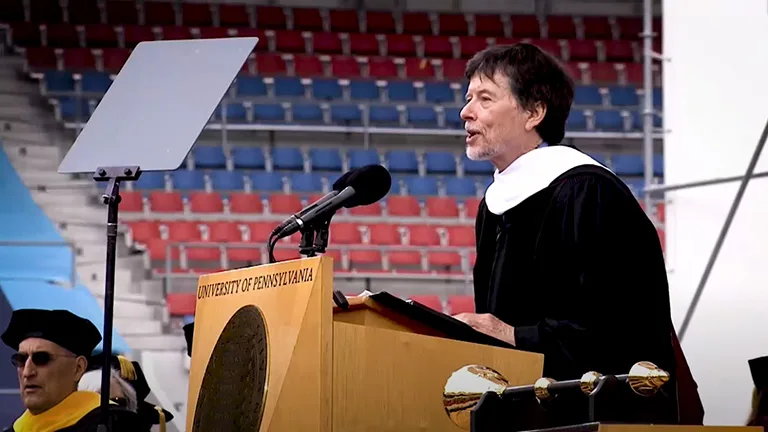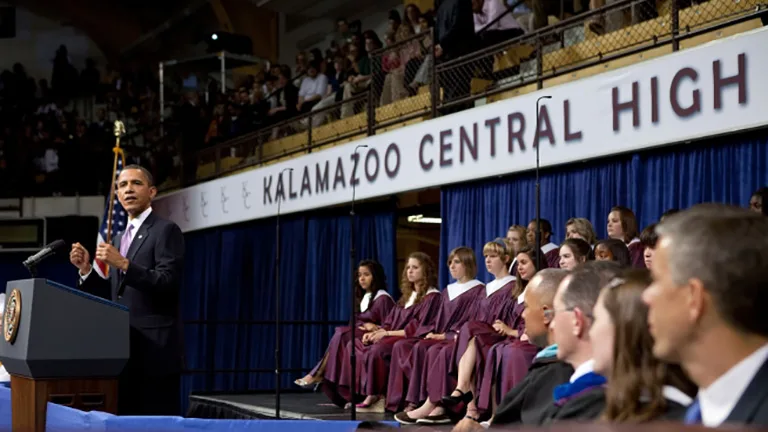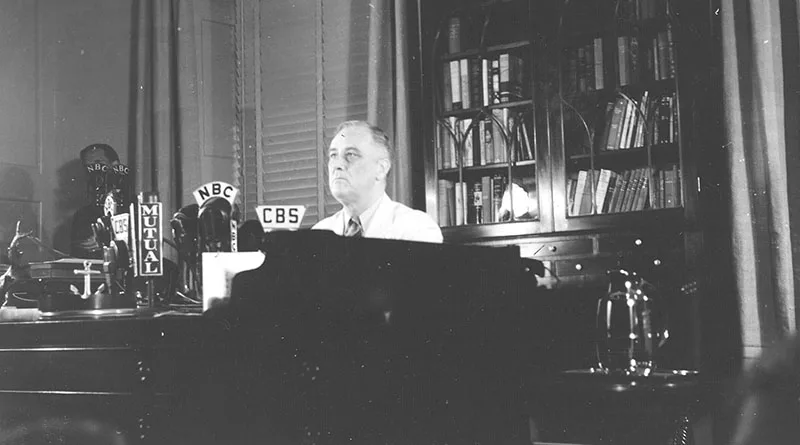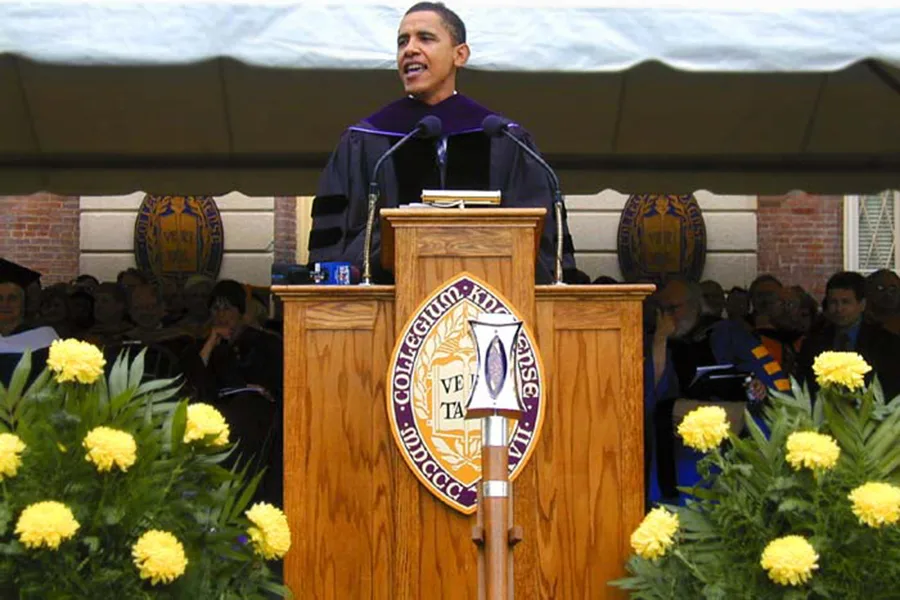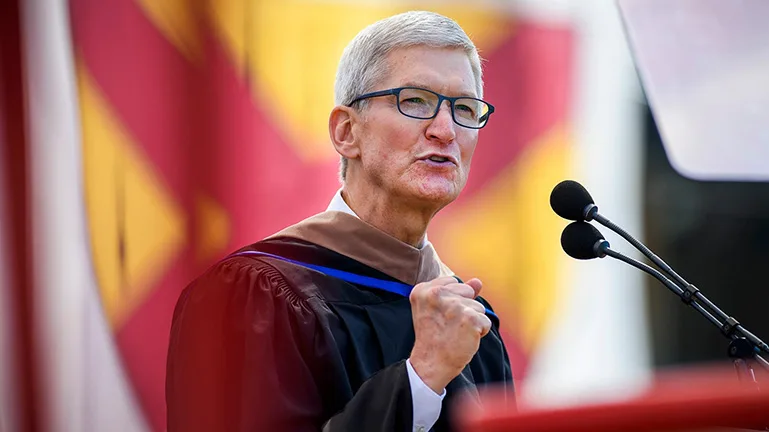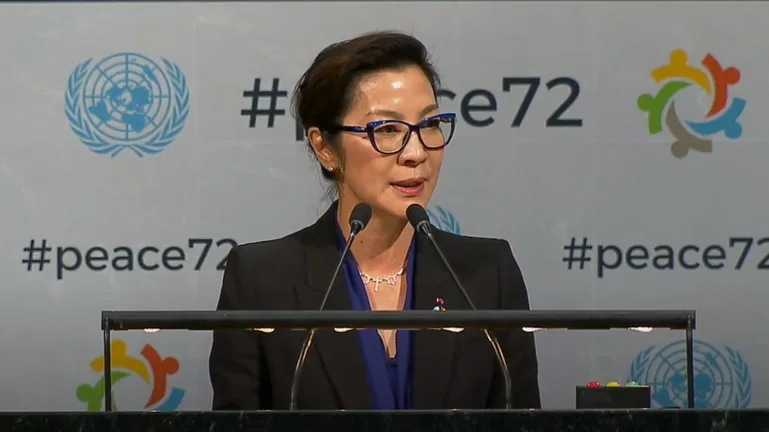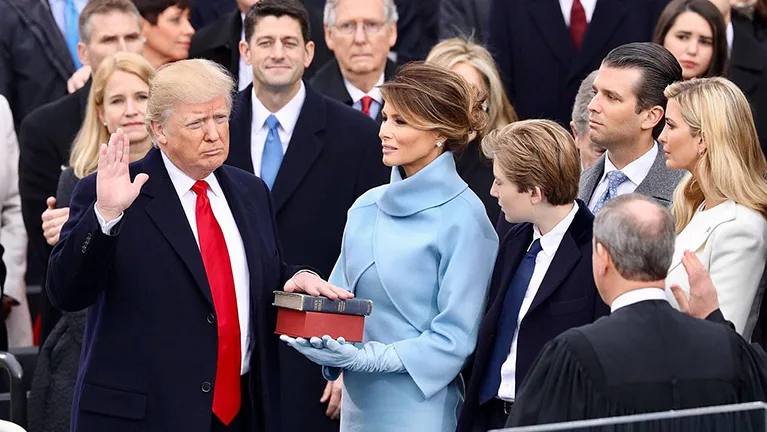President Pritchett, Provost Winkelstein, members of the board of trustees, fellow honorees, distinguished faculty and staff, proud and relieved parents, calm and serene grandparents, distracted but secretly pleased siblings, graduating students of the class of 2022, good morning.
I am deeply honored that you have asked me here to say a few words at so momentous an occasion that you might find what I have to say worthy of your attention on so important a day. I’d also like to acknowledge your past president, Amy Gutmann.
Thankfully, here with us as an honoree who not only first invited me to speak with you today, but encouraged the university to join in helping to underwrite our most recent film on Benjamin Franklin, one of your founders. She assumed she’d preside over this commencement, her last, she insisted, but like Franklin she answered her nation’s call and is serving not as Franklin did in France, but as our ambassador to Germany during these particularly perilous days of pandemics, genocide against people of sovereign nations, assaults on democracy and human liberties everywhere, everywhere.
I would be remiss if I did not also acknowledge before I start my remarks that nearly 86 years ago right here in Franklin Field, FDR accepted his party’s nomination for a second term as president. His speech was remarkable in so many ways, but as I thought about being here with you today and as I thought about all the strains on the fragile Republic, Benjamin Franklin hoped we could keep. There’s one sentence that Franklin Roosevelt spoke that day that stands out. “Better the occasional faults of a government that lives in a spirit of charity than the consistent omissions of a government frozen in the ice of its own indifference.” That sentiment can be applied to us as individuals, as well as to the US.
Okay, it’s probably clear by now I am in the business of history. It’s not always a popular subject, thank you, where it may seem to some an irrelevant pursuit particularly with the ferocious urgency this moment seems to exert on us. It is my job, however, to remind people of the great power our past also exerts, to help us better understand what’s going on now. It has been my day job for over 45 years to try to discern those themes and echoes from our history that help us interpret our dizzying and dismaying, sometimes dismaying present.
It might therefore be favorable to my remarks and your possible reception of them to realize that our complicated country with all its obvious glories and equally obvious flaws was born not two and a half miles from here, and that your university’s founder was as instrumental as anyone on earth in that creation.
Over my professional life I have come to the realization that history is not a fixed thing. A collection of precise date, facts and events, but a mysterious and malleable thing constantly changing not just as new information emerges, but as our own interests, emotions, and inclinations change. Each generation rediscovers and reexamines that part of its past that gives its present new meaning and new possibilities. The question becomes for us now, for you graduates, especially, what will we choose as our inspiration?
In some ways today, right now, one of those influential and inspiring figures is Benjamin Franklin. You are in fact, as you know, surrounded by him, what he made here, but also what he represents. He is inescapable. In your rear view mirror now is your university’s founder and our founding father.
Ahead of you lies a future filled, I hope with accomplishment and success. If we’re honest, if we’re honest, a good deal of that imagined success is measured by how many Benjamins you can amass.
Come on, admit it.
It is no accident that the largest bill in general circulation has his face on it. Franklin has, since his own day been held up by every succeeding generation as an example of the self-made person who pulled himself up by his own bootstraps, a Libertarian’s dream of self-reliance and self-interest, but that is only half the story. Franklin himself would be disappointed if he thought that’s all we had learned from him. It would be like tearing that Benjamin, that $100 bill in half, rendering it useless.
Franklin was proud that this relatively impoverished kid had like a free electron, escaped the specific gravity of Puritan Boston and found here, in a more tolerant, Quaker Philadelphia, the means to outgrow his humble beginnings, but his striving for material success was always tethered to a deep and abiding conviction that, as he said, the most acceptable service we render to God is doing good to his other children.
Franklin was always interested in being transformational not just transactional, as too much of our own lives has sadly become. It wasn’t just this extraordinary institution he founded, but The Library Company of Philadelphia, a hospital and a voluntary fire department, the American Philosophical Society, the first learned society in America and countless other civic improvements.
When he made what he thought was enough money, he retired in his forties to devote himself to groundbreaking scientific inquiry. His experiments with electricity led to his becoming the greatest scientist of the 18th century and the most famous American in the world. And all of his important inventions which could have made him exponentially richer, he shared without patent with the rest of society. He never saw himself as an economic unit but as a spiritual being obligated in the best sense of that word to contribute meaningfully to society.
After that, he dove even deeper into charitable activities in civic life, becoming a member of the Pennsylvania Assembly, serving as an agent for his colony and others in London, finally becoming at the ripe old age of 69, a committed revolutionary. He helped edit and craft The Declaration. He secured in the greatest feat of diplomacy in American history, the French financial and military support that would prove decisive in our unexpected victory over the greatest military force on earth.
Later, he would help forge the myriad, and in some cases, tragic compromises that created our constitution and set in motion literally, ladies and gentlemen, the United States of America.
And for all of that, he was also a profoundly flawed human being who could not escape the sins the flesh is air to, who is often distant and disconnected from his own family, a deeply prejudiced person who enslaved other human beings, yet by the end of his life, he would become the president of an early abolitionist society and submit to Congress a petition asking it to end slavery in the new United States. It failed, but his personal involvement helped spark the first public debate under the new government on the very question of slavery.
Listen, once when Benjamin Franklin was still in Paris, huge balloons appeared in the skies over Paris. Hundreds of thousands of people turned out to see human beings flying for the first time. Franklin watched it with his, of course, usual omnivorous curiosity thinking about all of the possibilities. When a man standing next to him scoffed at the balloons and said interesting, but what’s the use of it? Franklin turned to him and said, what’s the use of a newborn baby? He saw only potentiality.
Now this is not to suggest that you are in any way babies, but to say at this moment on this memorable day for you, we need more lightning rods.
You sit here all potentiality and wonder. Franklin had only two years of elementary education as his biographer, H. W. Brands understood schools teach you what you’re supposed to know but also what you don’t have to know. What Franklin Brand said, he never knew what he didn’t have to know, so he assumed he’d have to know everything. That’s the key to Franklin. He was always searching nature, art, society, politics, science, faith, himself looking for ways to improve in all those arenas, especially himself for he understood deeply and painfully that he was a mass of contradictions and limitations just like the rest of us.
He was a work in progress, always in progress. Franklin also believed as many of the other founders did that the pursuit of happiness was not a search for objects in a marketplace of things, but lifelong learning in a marketplace of ideas. And the key word in that phrase is not even happiness, but pursuit.
We are a nation and individuals in the process of becoming, and the truths that we’re supposedly self-evident then that’s Franklin’s contribution by the way, Thomas Jefferson had wanted sacred and undeniable. The self evident truth this new government was claiming just for white men at first, of course, required an exquisite tension between personal freedom, what I want and collective freedom, what we need.
The latter was in the end much more important to him than the former. Benjamin Franklin was born in the Massachusetts Bay Colony but he would die here in what would become the Commonwealth of Pennsylvania.
Commonwealth, Commonwealth. It’s not a word we use much today. It even sounds, God forbid, vaguely socialistic, but it’s the key to understanding where we come from and the blessings we’ve inherited since, Commonwealth.
Unfortunately, we live in an age where we are constantly encouraged to be independent free agents, economic units, seekers not of truth, but of Benjamins, that free agency is essentially unconnected to real community, divorce from any real civic engagement. It dupes us into believing in our own lonely primacy that it’s okay to live in an all-consuming and thereby, disposable present.
This spurious sovereignty is reinforced and perpetually rewarded in our world to our obvious and great comfort, but this kind of existence actually ingrains in us a stultifying sameness that rewards conformity, not courage or virtue, that rewards ignorance and anti-intellectualism, not critical thinking or civic responsibility.
This wouldn’t be so bad if we were just wasting our own lives, but our future as a democracy depends on you making things better. A Republic, if you can keep it, as Franklin challenged us 235 years ago.
Let me apologize, we’ve nearly broken this Republic of ours, but you somehow have to fix it. You’re going to have to initiate a new movement, a new Union Army that must be dedicated above all else, including your career and personal advancement to the preservation of this country’s civic ideals. You’ll have to learn and then reteach the rest of us that equality, real equality is the hallmark and birthright of all Americans.
Thankfully, thankfully you will become a vanguard against the separatism that seems to infected our ranks. A vanguard against those forces that have, in the name of our great democracy, have managed to diminish it. I know you can do it but it requires your civil not cynical energies.
Okay, now, Benjamin Franklin always loved to tell others how to conduct themselves. So let me speak directly to the graduating class. Watch out, here comes the advice.
Be curious, not cool.
Be virtuous and purposeful.
Do good things, help others.
Do not get frozen in the ice of your own indifference.
Don’t confuse success with excellence, those Benjamins are a means not an end.
Do not descend too deeply into specialism, educate all of your parts, you will be healthier.
Read, the book is still the greatest manmade machine of all. Not the car, not the computer, not the smartphone, the book. I think if Franklin came back today and thought about the internet, the web, he’d say I observed in nature that a web is a place where you get caught and then killed.
Travel, travel, do not get stuck in one place. Be in nature. Its sheer majesty may remind you of your own atomic insignificance, as one observer put it, but in the inscrutable and paradoxical ways of wild places you will feel larger, inspirited just as the egotist in our midst is diminished by his or her self-regard.
At some point make babies. One of the greatest things that will happen to you. One of the greatest things that will happen to you is that you will have to worry, I mean really worry about someone other than yourself.
It is liberating. It is liberating and exhilarating, I promise, ask your parents.
Please, do not lose your enthusiasm. In its Greek etymology, the word enthusiasm means simply God in us.
Good luck, congratulations. I wish you well on your journey towards becoming and God bless the Commonwealth of Pennsylvania.
